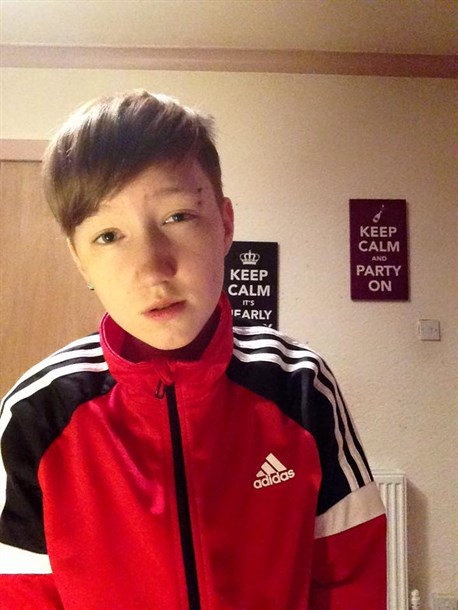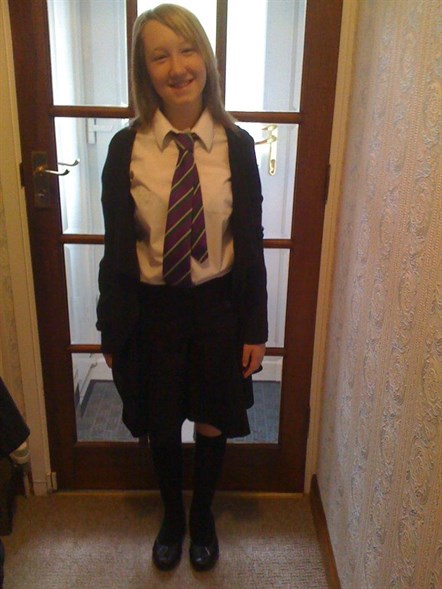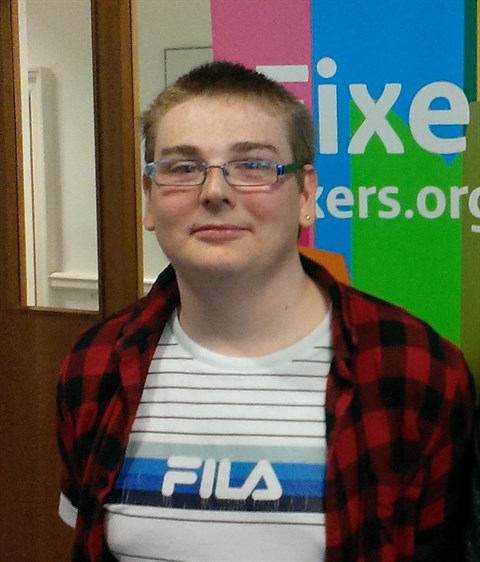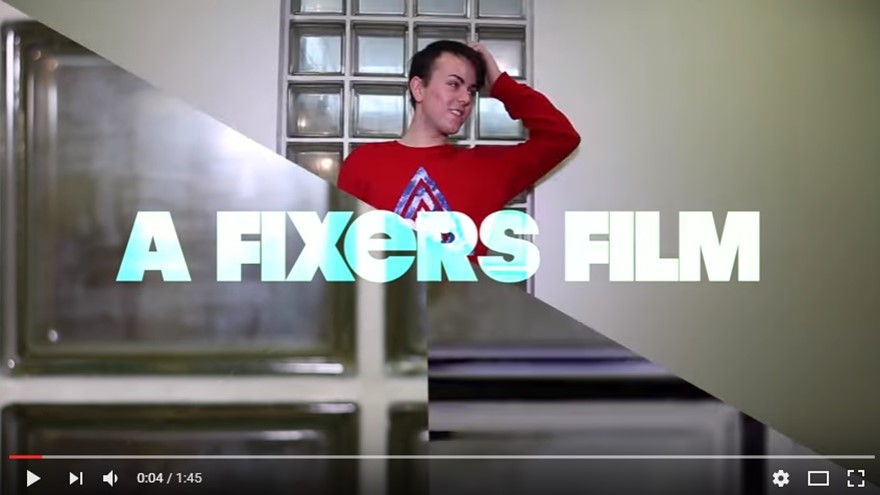Fixers, a charity that helps young people create videos and media campaigns to highlight issues they care about, has been working with West College Scotland students to share their stories.
Rebekka Howie, 17, a student in healthcare, is gender fluid, a term used for people who identify with both sexes. Some days Rebekka wakes up a girl and wears make-up and a body con dress, and other days she wakes up a boy and wears a baseball cap and baggy jeans.
“I just wake up and know which gender I want to be. It’s a feeling that’s hard to explain. Sometimes the thought of wearing a skirt is really unappealing and then other days, it’s what I feel most comfortable in.”

Rebekka's friends never know from one day to the next who she will turn up to college as.
“Sometimes it will be a bit of a shock for friends when they see me in a dress, heels and wearing make-up, but they are all very supportive. They know that deep down I’m the same person.”
Not everyone has been supported Rebekka’s sexuality. When she came out as a lesbian, she was bullied at school.
“I had my head flushed down the toilet, I was thrown in the bin, I was hit in the face…it was horrible.”
The bullying ended when Rebekka left school to attend West College Scotland where she is studying healthcare.
“I don’t think anyone should be persecuted because of their sexuality. I don’t want anyone to have to go through what I went through. I want people to know that it’s okay to be gay, trans, or gender fluid, as long as you’re happy.”
Rebekka was just 13 when she realised she was gender fluid.
“I could never understand why some days I wanted to be myself and dress like a girl, and other days I wanted to be a boy. I spoke to friends in the lesbian, gay, transgender and bisexual community (LGBT) and they explained that I could be gender fluid. I looked up the term, and it all fell into place.”

Rebekka’s parents have taken the news in their stride.
Erica, Rebekka’s mum, says: “Growing up, she’d always been a bit different so I wasn’t the least surprised when she told me. As long as she’s happy, that’s all that matters.”
With Fixers, Rebekka has made a film with friends in the LGBT community to encourage people to be more tolerant of other sexualities.
Watch Rebekka's film, and share and spread the word, here.
Student Allan Rewcastle, 19, from Paisley, has dyspraxia, a developmental coordination disorder which means he struggles with balance, concentration and short-term memory loss.

“People ask ‘why are you walking funny, why can’t you walk in a straight line?’ or say things like, ‘oh, someone’s started drinking early!’
Allan wants to tackle people’s misconceptions, so he has created a film with Fixers.
“I hope that by watching my film people will have a better understanding of the limitations dyspraxia can place on individuals so there’s greater understanding and tolerance. As a result of my condition, I’ve never been any good at sports. In school, I was always the last one to get picked, which is frustrating. I loved playing football with my friends but I was no good at it. Everyone would laugh and snigger at me, so I stopped doing it. Even everyday tasks like tying shoes laces, buttoning up a shirt can be challenging.”
The film, which is set in a school corridor, highlights Allan’s struggle.
“School corridors were particularly difficult for me to negotiate because I could trip and fall. The bell would ring and everyone would be rushing about. I was nervous and wanted to take my time but other pupils would be impatient and push past me.”
Dyspraxia also affects Allan’s mental abilities.
“My short-term memory is poor and I can only remember the things I really love, rather than what I’d learned the day before in class. Having more than one exam in a day would be stressful for me. Just getting to one exam and being organised ahead of it involved significant effort for me. The pressure to get things right meant I rushed and made mistakes in important tests.”
Despite the obstacles Allan faces he is determined not to let dyspraxia get the better of him and hopes to pursue a teaching career so he can help other young children.
“At my lowest point dyspraxia made me feel useless. I believed I was destined to have terrible job prospects and that I’d never be able to fulfil my dreams. But I’ve learnt not to let dyspraxia affect my daily life and when I accomplish something I feel good about myself.”
Help Alan spread the word about dyspraxia by watching his video here.
Fixers works with young people aged 16-25 across the UK by providing them with resources to help them campaign on issues they feel strongly about. The charity has helped more than 18,000 youngsters across the UK to have a voice in their community on issues such as cyber-bullying, self-harm, suicide or transphobia. For more information or to make a donation to fund more Fixer projects, visit www.fixers.org.uk
